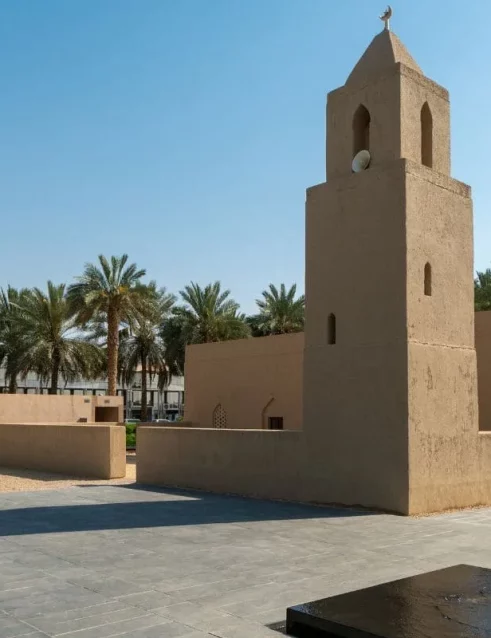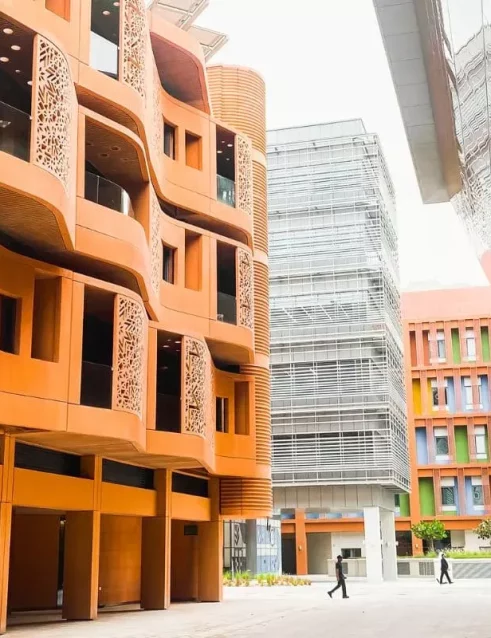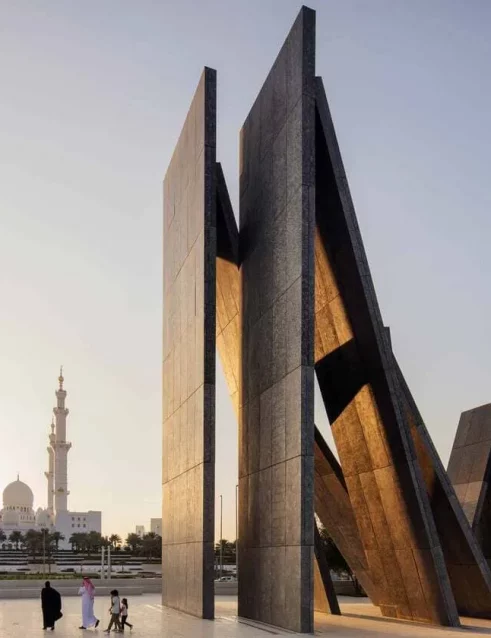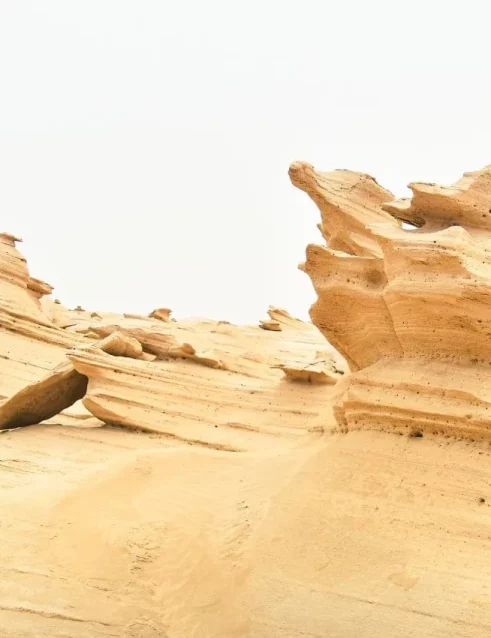The Soaring Heritage: Falconry in UAE
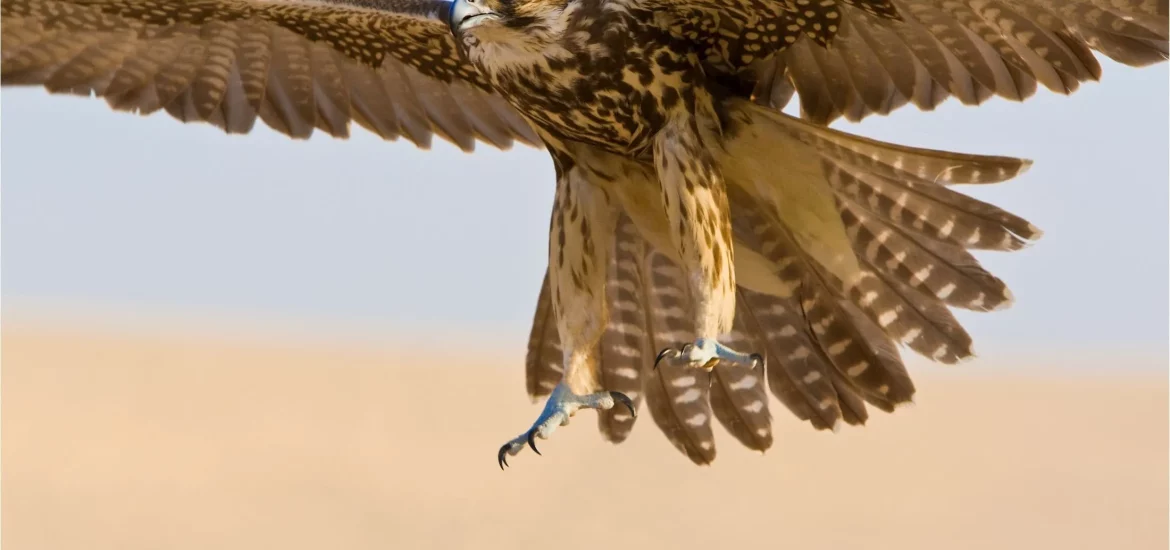
The History and Cultural Significance of Falconry in Abu Dhabi
The Bedouin Legacy
In the vast, arid landscapes of what is now the United Arab Emirates, the ancient Bedouins, the nomadic desert dwellers, developed falconry not just as a means of survival but as an art form that has endured for centuries. These early falconers, with their keen understanding of the natural world, tamed and trained wild birds of prey, turning the harsh realities of desert survival into a sophisticated cultural practice.
In the context of the Bedouin lifestyle, where resources were scarce and the environment unforgiving, falcons became indispensable hunting companions. They were revered for their ability to strike at game that would otherwise be beyond the reach of a human hunter. This practical use of falcons evolved over time, imbuing these birds with a symbolic significance that transcended their hunting utility. Falcons came to embody the virtues of patience, courage, and nobility – traits highly valued in Bedouin culture.
The practice of falconry also served as a form of social interaction and a means of establishing status within the community. A skilled falconer was often held in high esteem, and the possession of a well-trained falcon was a sign of prestige. This tradition was passed down through generations, with fathers teaching their sons the intricate skills of falconry – from identifying and capturing a fledgling falcon to training it and caring for it as a valued member of the family.
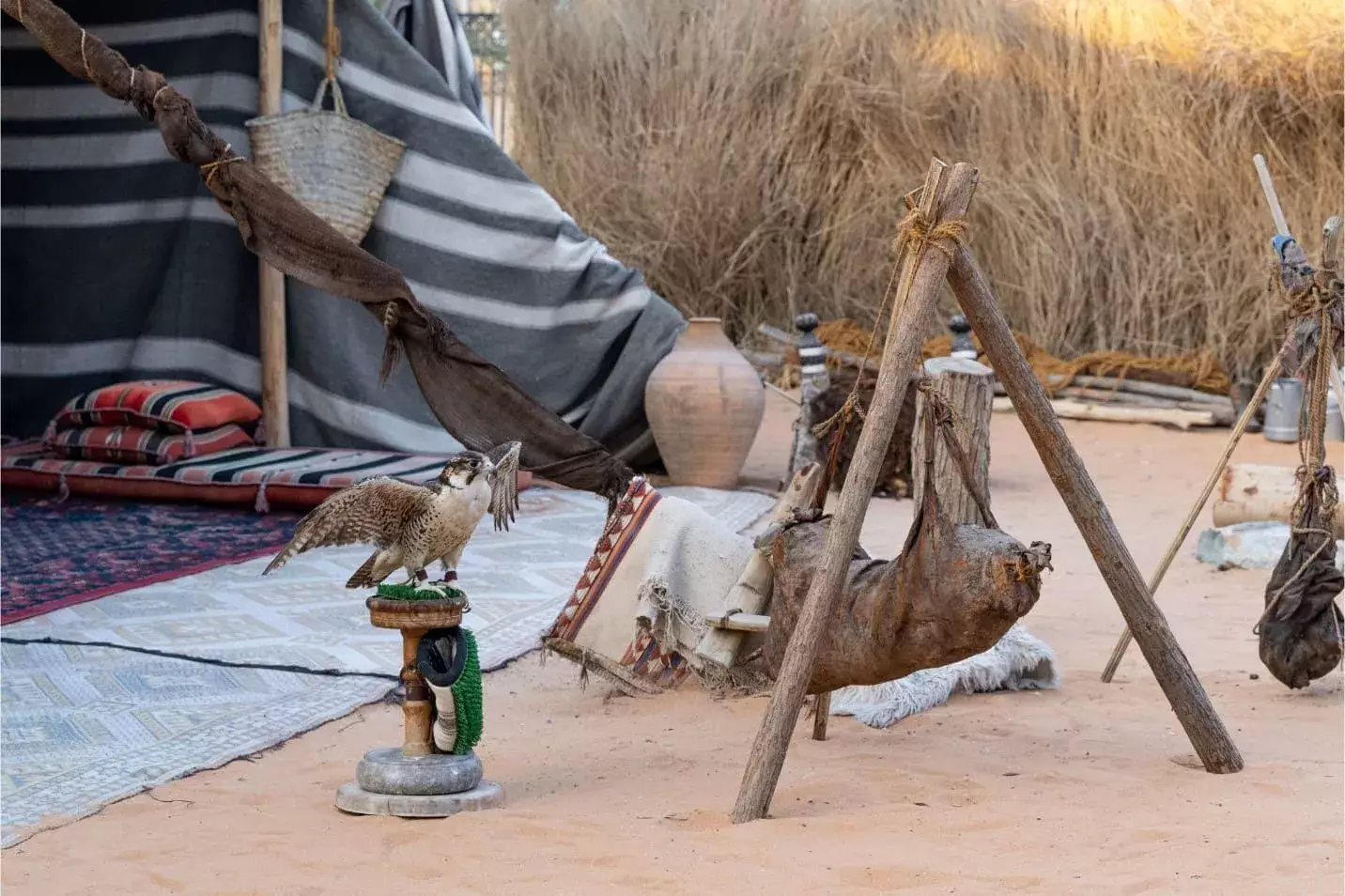
Cultural Tapestry
In Abu Dhabi, falconry has woven itself into the very fabric of Emirati culture. It is a symbol deeply ingrained in the national identity, celebrated in literature, music, and art. Traditional Emirati poems and stories often depict the falcon as a noble companion, highlighting its importance in the Bedouin way of life. These cultural artifacts serve as a testament to the profound bond between the people of this region and their falcons, a bond that has shaped their collective identity over millennia.
With the formation of the United Arab Emirates in 1971, and the rapid modernization that followed, falconry too began to transition. What was once a necessary survival skill transformed into a symbol of cultural heritage, a link to a past that the Emirati people hold dear in an age of skyscrapers and global cities. In modern Abu Dhabi, falconry is not just about hunting; it’s a celebration of history, a ritual that connects the present to a time when life moved to the rhythm of the desert.
Today, falconry continues to be a prominent feature in cultural festivals and national celebrations in Abu Dhabi. It’s a spectacle that draws both locals and tourists, eager to witness the elegance and skill of these birds and their trainers. The government of the UAE, recognizing the cultural and historical importance of falconry, has taken steps to preserve and promote this tradition. This includes support for falconry clubs, educational programs, and participation in international efforts to recognize falconry as a global cultural heritage.
In embracing the rich legacy of falconry, Abu Dhabi pays homage to its ancestors and reaffirms its commitment to preserving a tradition that is as much a part of the natural landscape as the dunes and the desert skies.
Falcons and Falconry: A Bond Beyond Sport
The Feathered Hunters
Falcons, revered as symbols of freedom and ferocity, hold a place of honor in the hearts of the Emirati people. In Abu Dhabi, the most commonly used falcons are the Saker and Peregrine, known for their exceptional speed, keen eyesight, and hunting prowess. These birds are not merely tools for hunting; they are cherished companions, revered for their grace and beauty.
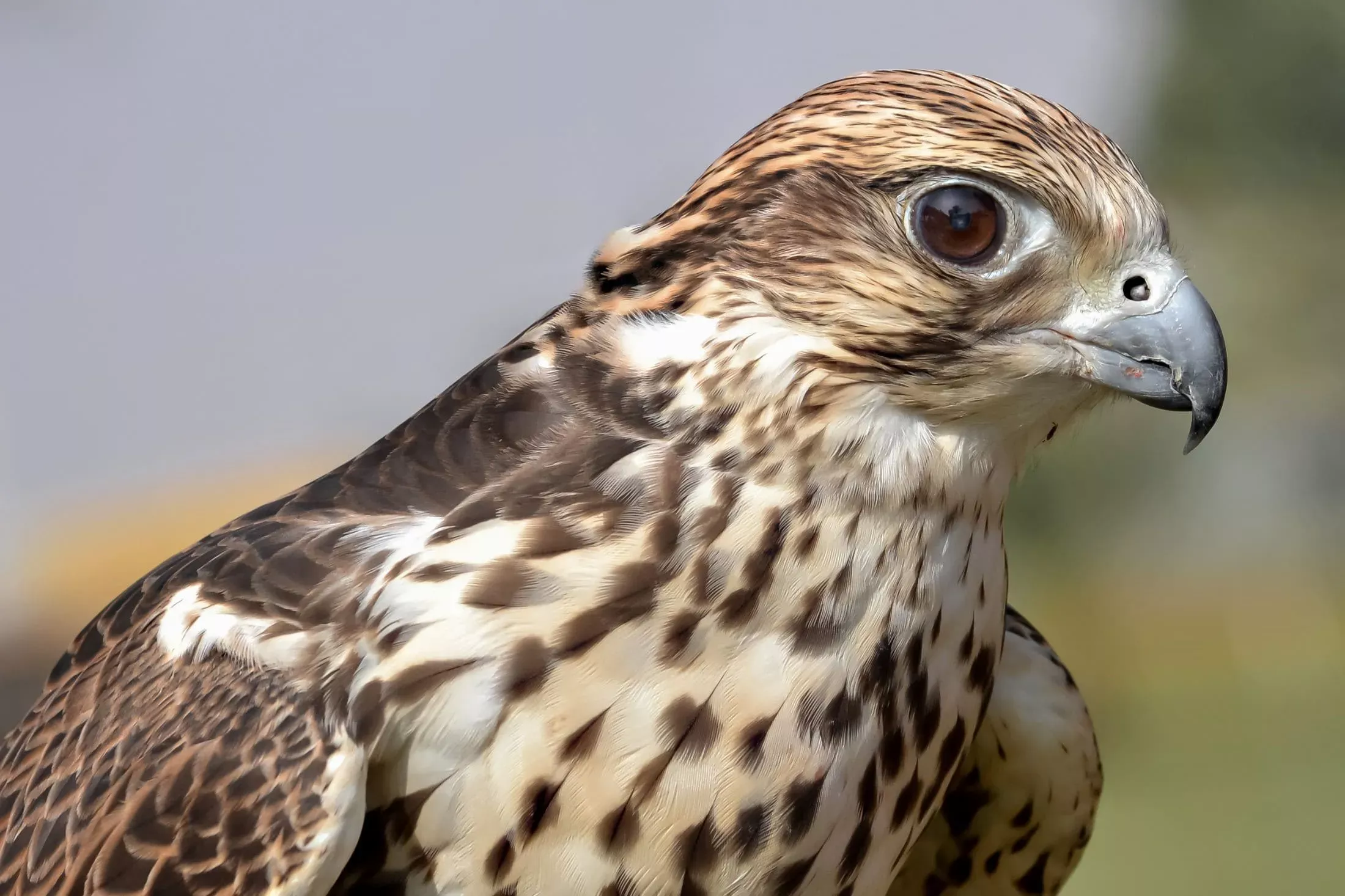
The process of training a falcon in Abu Dhabi is an intricate art, passed down through generations. It begins with the delicate task of gaining the bird’s trust, a process that requires immense patience and understanding. The falconer must attune to the bird’s instincts, behaviors, and responses, building a relationship based on mutual respect. Training a falcon involves teaching it to respond to commands, return to the falconer, and ultimately, participate in hunts. This process can take months, sometimes years, reflecting the dedication and skill of the falconer.
The Art of Falconry
Falconry in Abu Dhabi is more than a mere pastime; it is a refined art that encompasses the breeding, training, and caring for falcons. Specialized equipment such as hoods, jesses (leather straps), and gloves are used in the handling and training of these birds. The falcon hood, a distinctive and symbolic piece of equipment, is used to keep the bird calm and focused. The design and decoration of these hoods often reflect the personal style of the falconer, adding an element of artistry to the practice.
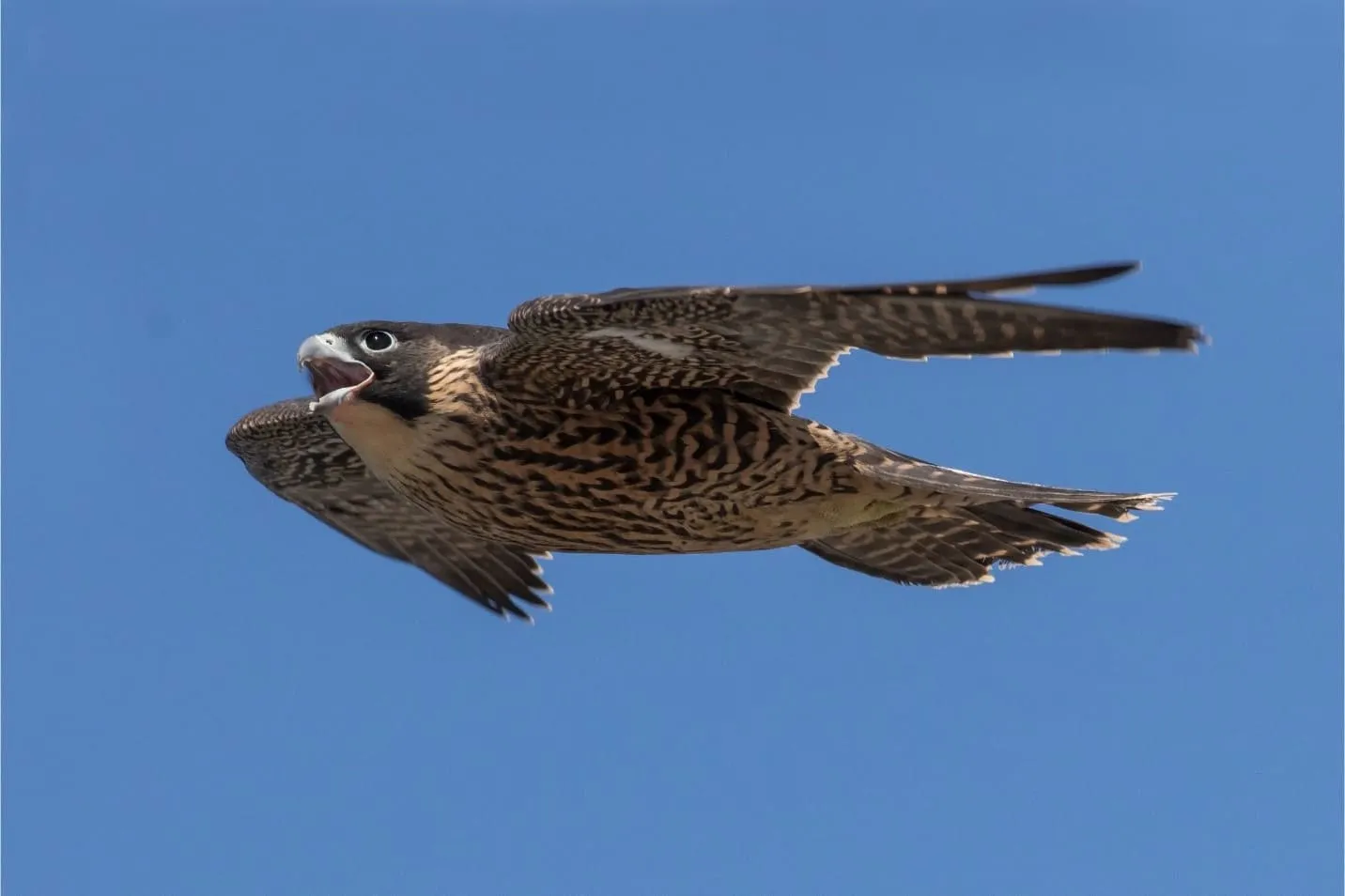
Social Fabric
In Abu Dhabi’s social landscape, falconry serves as a thread that weaves through the community, binding people with shared traditions and values. It is a practice that reinforces social ties, as falconry events often become social gatherings, bringing together families and friends. In these gatherings, stories and experiences are shared, and the skills of the falconers are admired and respected.
For Emirati youth, learning falconry is a rite of passage, a means through which they connect with their heritage and learn the values of patience, discipline, and respect for nature. Falconry is not just about the relationship between the falconer and the falcon; it is about community, tradition, and the transmission of cultural values from one generation to the next.
Falconry Today: Conservation and Modern Practices
Conserving the Skies
In recent years, Abu Dhabi has emerged as a leader in the conservation of falcons, acknowledging the delicate balance between cultural tradition and ecological responsibility. Understanding the threats faced by falcon populations, such as habitat loss and declining wild prey, the UAE has initiated several conservation programs to protect these majestic birds.
One of the cornerstone initiatives in falcon conservation is the Abu Dhabi Falcon Hospital, the world’s largest and most advanced falcon health institution. Established in 1999, this facility not only provides comprehensive veterinary services for falcons but also conducts research and breeding programs. These efforts have been instrumental in increasing the understanding of falcon health and biology, contributing significantly to the conservation of falcon species globally.
Another significant conservation effort is the Sheikh Zayed Falcon Release Program. Named after the late founder of the UAE, this program focuses on rehabilitating and releasing falcons back into the wild. Since its inception, it has successfully released hundreds of falcons, helping to sustain wild populations and ensure the species’ future.
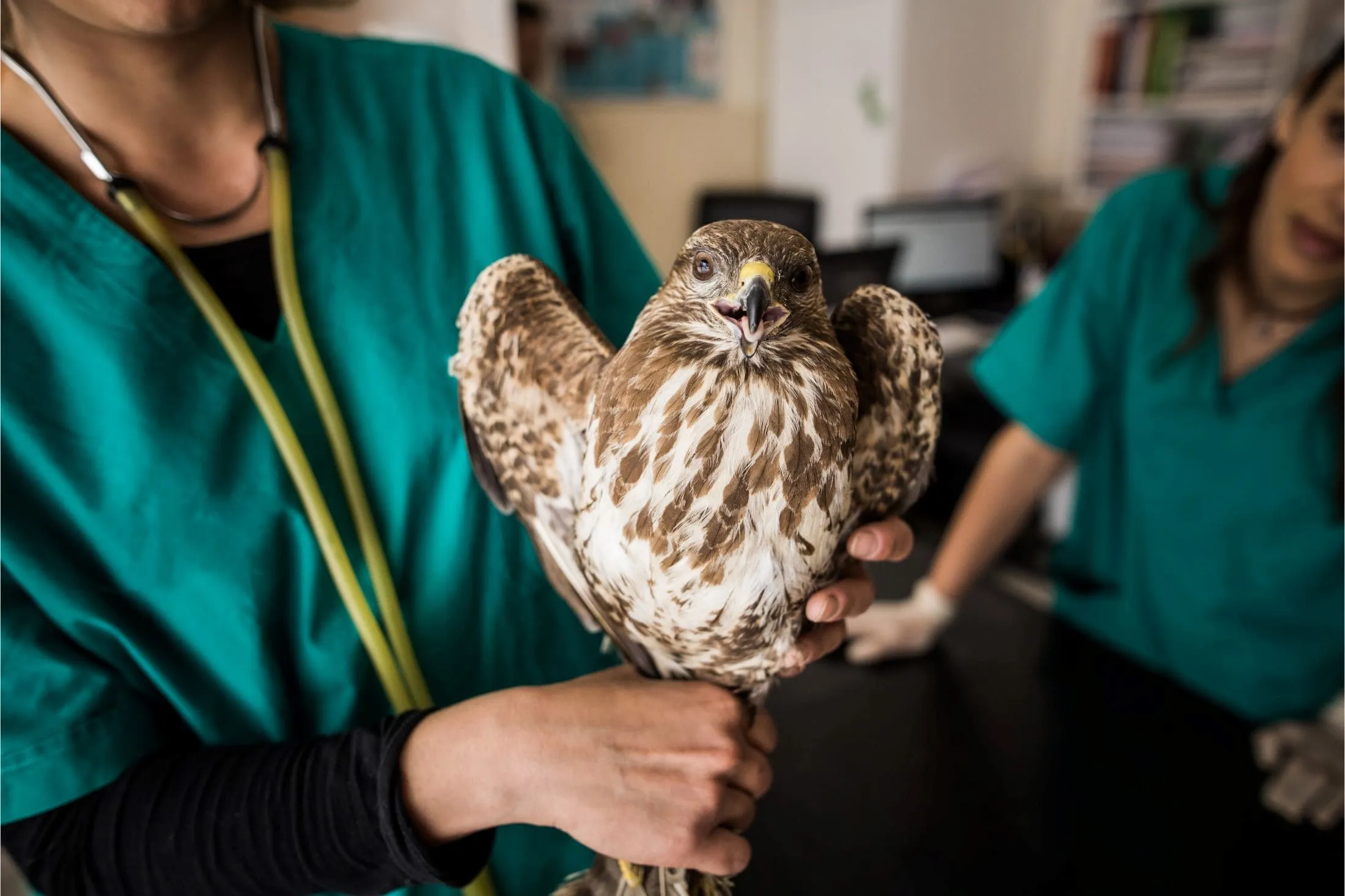
Embracing Technology in Falconry
In the realm of falconry, Abu Dhabi has skillfully blended traditional practices with cutting-edge technology. Modern falconers now use GPS and telemetry to track their falcons during training and hunting expeditions, providing valuable data on the birds’ flight patterns and behaviors. This technological integration not only enhances the falconry experience but also plays a crucial role in the safety and well-being of the falcons.
Moreover, advancements in veterinary medicine have revolutionized the care of these birds. From sophisticated diagnostic tools to state-of-the-art surgical techniques, the health and longevity of falcons have significantly improved. This medical expertise is crucial, especially given the high value and cultural significance of falcons in Emirati society.
Legal Framework and Regulations
Recognizing the importance of sustainable and ethical falconry practices, the UAE government has implemented a robust legal framework. This includes stringent regulations on the trapping, trading, and ownership of falcons. The introduction of falcon passports, a unique initiative, has been particularly effective in regulating the international movement of falcons and combating illegal trade.
Educational Outreach and Community Engagement
Abu Dhabi’s commitment to falconry extends beyond conservation and technology; it also encompasses educational and community engagement programs. These initiatives aim to instill a sense of responsibility and awareness about falcon conservation among the younger generations. Schools and educational institutions often host workshops and field trips to facilities like the Falcon Hospital, fostering a connection between the youth and this integral part of their heritage.
Falconry as a Tourist Attraction and Cultural Ambassador
Falconry: Showcasing Emirati Heritage to the World
Falconry in Abu Dhabi is not merely a local tradition; it has evolved into a significant cultural showcase, attracting tourists from around the globe. The allure of witnessing these majestic birds in action, coupled with the rich cultural heritage it represents, makes falconry a unique and compelling aspect of Abu Dhabi’s tourism.
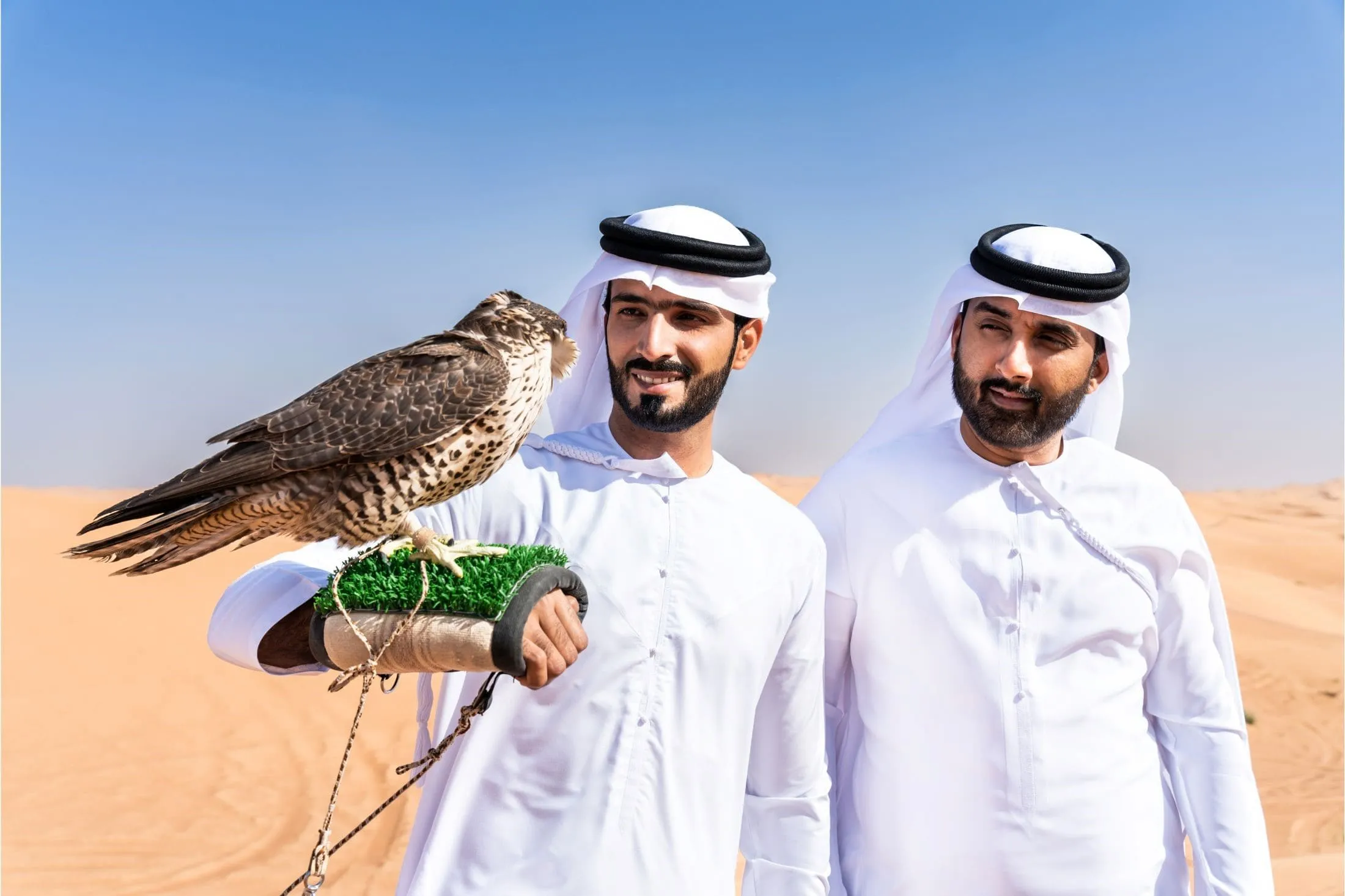
Events like the Abu Dhabi International Hunting and Equestrian Exhibition (ADIHEX) serve as major attractions. Here, falconry is displayed in all its glory, with live demonstrations, exhibitions of falconry equipment, and interactive sessions. These events offer a rare glimpse into the intricate world of falconry, allowing visitors to experience the thrill of seeing these birds up close and understanding the skill and dedication involved in their training.
Educational and Interactive Experiences
To further engage visitors, several falconry centers and reserves in Abu Dhabi offer educational tours and interactive experiences. These programs are designed not just to entertain but to inform and educate visitors about the importance of falconry in Emirati culture and the conservation efforts surrounding these birds. Such initiatives play a crucial role in fostering a deeper understanding and appreciation of falconry among a global audience.
Falconry in Abu Dhabi is a rich tapestry of history, culture, and tradition. As we reflect on its timeless allure, it becomes evident that preserving this tradition is essential, not just for the UAE but as a cultural treasure for the entire world. As the falcons continue to grace the skies of Abu Dhabi, they symbolize a culture that values its past as much as its progress, a culture that finds its identity in the majestic flight of its cherished birds.







